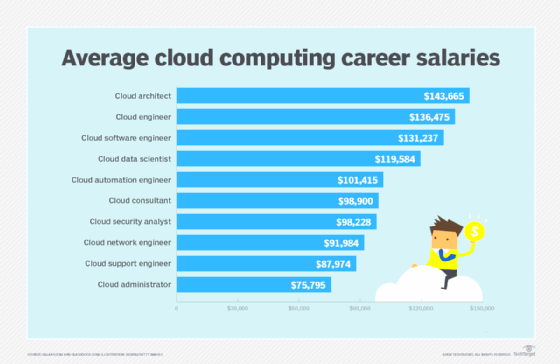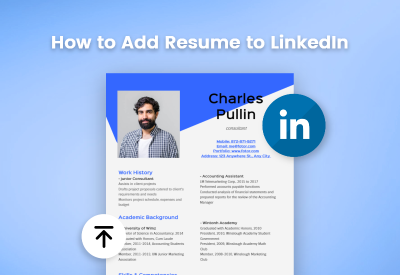Cloud computing has transformed the way we use
technology in our daily lives and businesses. It allows users to store, manage, and access data and applications over the internet instead of relying solely on local servers or personal devices. This shift not only enhances efficiency but also provides flexibility and scalability for companies of all sizes.Here are a few key reasons why cloud computing is so important:
- Cost-Effective: It reduces the need for expensive hardware and software investments, making technology accessible for small businesses.
- Scalability: Companies can easily adjust their resources based on demand, ensuring they only pay for what they use.
- Accessibility: Cloud services can be accessed from anywhere with an internet connection, promoting remote work and collaboration.
- Security: Many cloud providers invest in robust security measures, often surpassing what individual businesses can afford.
Key Roles in Cloud Computing

The cloud computing sector offers a variety of job roles catering to different skill sets and interests. Here are some of the key positions:
- Cloud Architect: Designs cloud infrastructure and services tailored to the organization's needs.
- Cloud Engineer: Responsible for managing and maintaining cloud systems, ensuring they run smoothly.
- Cloud Security Analyst: Focuses on protecting cloud data and applications from cyber threats.
- DevOps Engineer: Bridges the gap between development and operations, streamlining processes in cloud environments.
- Data Scientist: Utilizes cloud tools to analyze large datasets and derive insights for decision-making.
Skills Required for Careers in Cloud Computing

To succeed in cloud computing careers, individuals need a mix of technical and soft skills. Here are some of the essential skills:Top Cloud Computing CertificationsGetting certified in cloud computing can significantly boost your career prospects. Certifications validate your skills and knowledge, making you a more attractive candidate to employers. With various options available, it’s essential to choose the right certification that aligns with your career goals. Here’s a look at some of the top cloud computing certifications:
- AWS Certified Solutions Architect: This certification focuses on designing distributed systems on AWS. It’s ideal for professionals aiming to demonstrate their ability to architect solutions.
- Microsoft Certified: Azure Solutions Architect Expert: Targeted at those who design solutions on Microsoft Azure, this certification showcases your expertise in Azure services.
- Google Professional Cloud Architect: This certification is for individuals who can design, develop, and manage robust, secure, scalable, and dynamic solutions on Google Cloud.
- CompTIA Cloud+: A vendor-neutral certification, CompTIA Cloud+ covers a broad range of cloud computing concepts, making it suitable for various job roles.
- Certified Kubernetes Administrator (CKA): As containerization becomes more prevalent, this certification focuses on managing Kubernetes clusters, which are often deployed in cloud environments.
Each certification has its own prerequisites and exam requirements, so it’s wise to research each option to find the best fit for your skills and career aspirations.
Job Opportunities in Cloud Computing
The demand for cloud computing professionals is soaring as more businesses migrate to the cloud. This trend has opened up numerous job opportunities across various industries. Here are some popular roles you might consider:
| Skill Type | Examples |
|---|
| Technical Skills |
| Job Title | Description |
|---|
| Cloud Solutions Architect | Designs and implements cloud solutions, ensuring they meet organizational needs and goals. |
| Cloud Engineer | Handles the deployment, management, and maintenance of cloud systems and services. |
| Cloud Consultant | Provides expert advice on cloud strategies, helping businesses optimize their cloud usage. |
| Cloud Sales Executive | Focuses on selling cloud services and solutions, working closely with customers to meet their needs. |
| Cloud Security Specialist | Ensures that cloud environments are secure and compliant with regulations. |
The landscape is continually evolving, and job seekers in this field can expect exciting opportunities that align with the latest technological advancements.
Future Trends in Cloud Computing Careers
As cloud computing continues to evolve, so do the careers associated with it. Staying updated on future trends is crucial for anyone looking to build a long-term career in this field. Here are some key trends to watch:
- Increased Adoption of Multi-Cloud Strategies: Many businesses are opting for multi-cloud environments, using services from different cloud providers. This trend will increase the need for professionals skilled in managing multiple platforms.
- Focus on Cloud Security: With rising cyber threats, there’s a growing demand for cloud security experts who can safeguard sensitive data in cloud environments.
- Rise of Edge Computing: As IoT devices proliferate, edge computing is becoming more prevalent. Professionals who understand how to integrate edge solutions with cloud platforms will be in high demand.
- Growth of Artificial Intelligence and Machine Learning: Cloud computing will increasingly support AI and ML applications, creating opportunities for specialists in these areas.
- Remote Work and Cloud Solutions: The shift toward remote work is likely to persist, leading to increased reliance on cloud-based collaboration tools and remote management solutions.
By keeping an eye on these trends, aspiring cloud computing professionals can better position themselves for success in the future job market.
Challenges in Cloud Computing Careers
While cloud computing careers are exciting and full of potential, they come with their own set of challenges. Understanding these challenges can help you prepare better and make informed decisions about your career path. Here are some common obstacles professionals face:
- Rapid Technological Changes: The cloud computing field evolves quickly, making it challenging to stay updated with the latest tools and technologies. Professionals must commit to continuous learning to remain competitive.
- Skill Gaps: Many organizations struggle to find candidates with the right mix of skills. As cloud technology advances, some professionals may find their existing skills outdated, necessitating additional training or certification.
- Security Concerns: With cloud services, there is always a risk of data breaches and security threats. Professionals need to be well-versed in security protocols to protect sensitive information effectively.
- Compliance Issues: Navigating legal and regulatory compliance can be complex, especially when dealing with data across different jurisdictions. Cloud professionals must understand relevant laws and regulations to avoid potential pitfalls.
- Job Competition: As the demand for cloud computing expertise grows, so does the competition for top positions. Building a strong portfolio and gaining relevant experience can be crucial to standing out in a crowded field.
Recognizing and preparing for these challenges can help you navigate your career in cloud computing more effectively.
Frequently Asked Questions
If you’re considering a career in cloud computing, you likely have some questions. Here are some frequently asked questions to help clarify your doubts:
What qualifications do I need for a career in cloud computing?
- Most roles require a degree in computer science or a related field, but relevant certifications can also significantly boost your profile.
Are cloud computing jobs remote?
- Yes, many cloud computing jobs offer remote work options, allowing for flexibility in your work environment.
What are the most sought-after skills in cloud computing?
- Skills in cloud platforms (AWS, Azure, Google Cloud), programming, data management, and cybersecurity are highly valued.
Is cloud computing a good career choice?
- Absolutely! The demand for cloud computing professionals is rising, making it a stable and lucrative career choice.
How can I stay updated on cloud computing trends?
- Following industry blogs, attending webinars, and joining professional organizations can help you stay informed.
Conclusion on Careers in Cloud Computing
In conclusion, a career in cloud computing offers a wealth of opportunities and potential for growth. With the increasing reliance on cloud services across various industries, the demand for skilled professionals is only expected to rise. However, it's important to acknowledge the challenges, such as rapid technological changes and skill gaps, that may arise in this dynamic field.By acquiring relevant certifications, continuously updating your skills, and staying informed about industry trends, you can successfully navigate your career in cloud computing. As you embark on this journey, remember that adaptability and a commitment to lifelong learning are key to achieving success in this exciting and ever-evolving landscape.
 The cloud computing sector offers a variety of job roles catering to different skill sets and interests. Here are some of the key positions:
The cloud computing sector offers a variety of job roles catering to different skill sets and interests. Here are some of the key positions: To succeed in cloud computing careers, individuals need a mix of technical and soft skills. Here are some of the essential skills:Top Cloud Computing CertificationsGetting certified in cloud computing can significantly boost your career prospects. Certifications validate your skills and knowledge, making you a more attractive candidate to employers. With various options available, it’s essential to choose the right certification that aligns with your career goals. Here’s a look at some of the top cloud computing certifications:
To succeed in cloud computing careers, individuals need a mix of technical and soft skills. Here are some of the essential skills:Top Cloud Computing CertificationsGetting certified in cloud computing can significantly boost your career prospects. Certifications validate your skills and knowledge, making you a more attractive candidate to employers. With various options available, it’s essential to choose the right certification that aligns with your career goals. Here’s a look at some of the top cloud computing certifications:
 admin
admin








